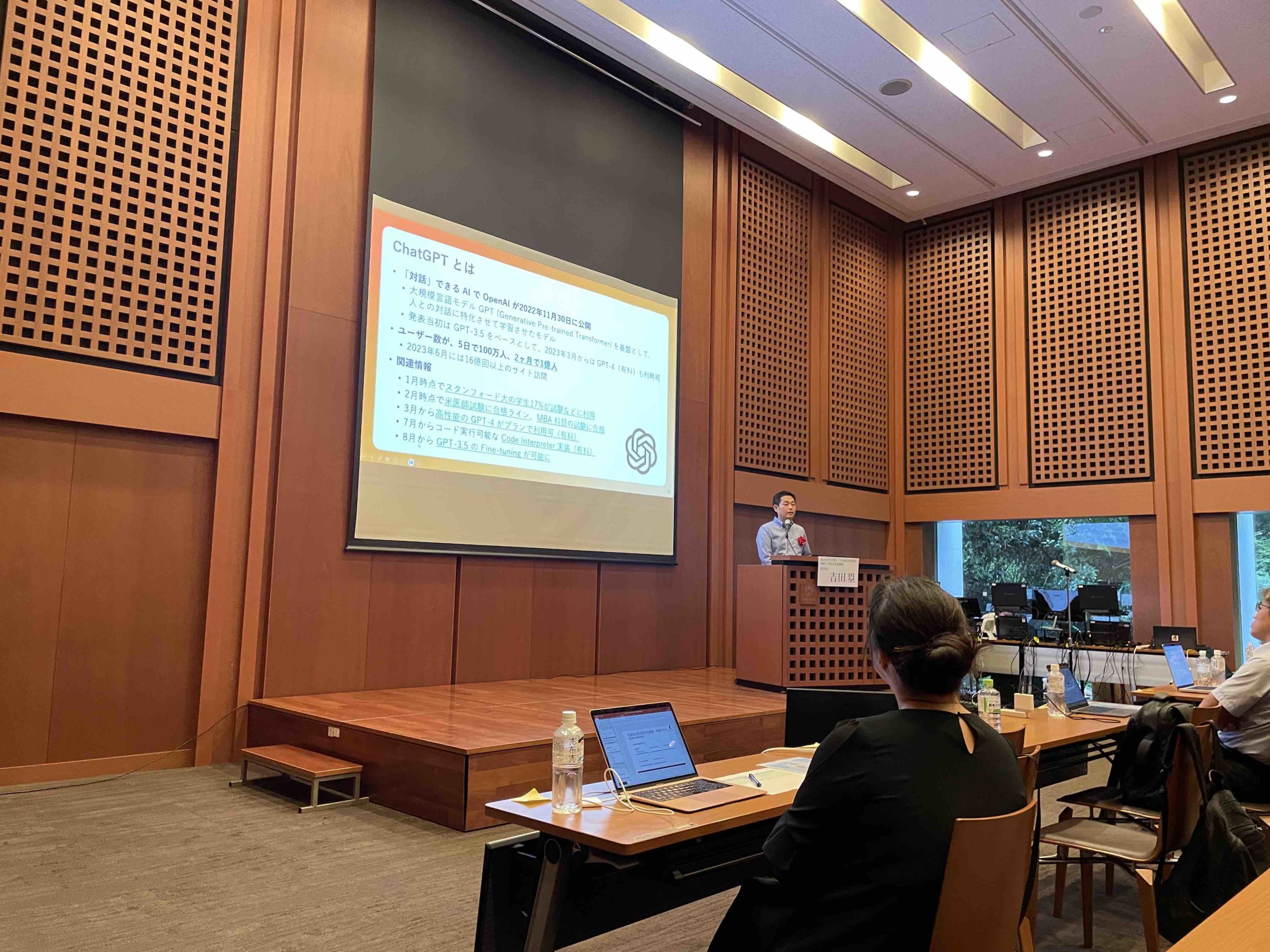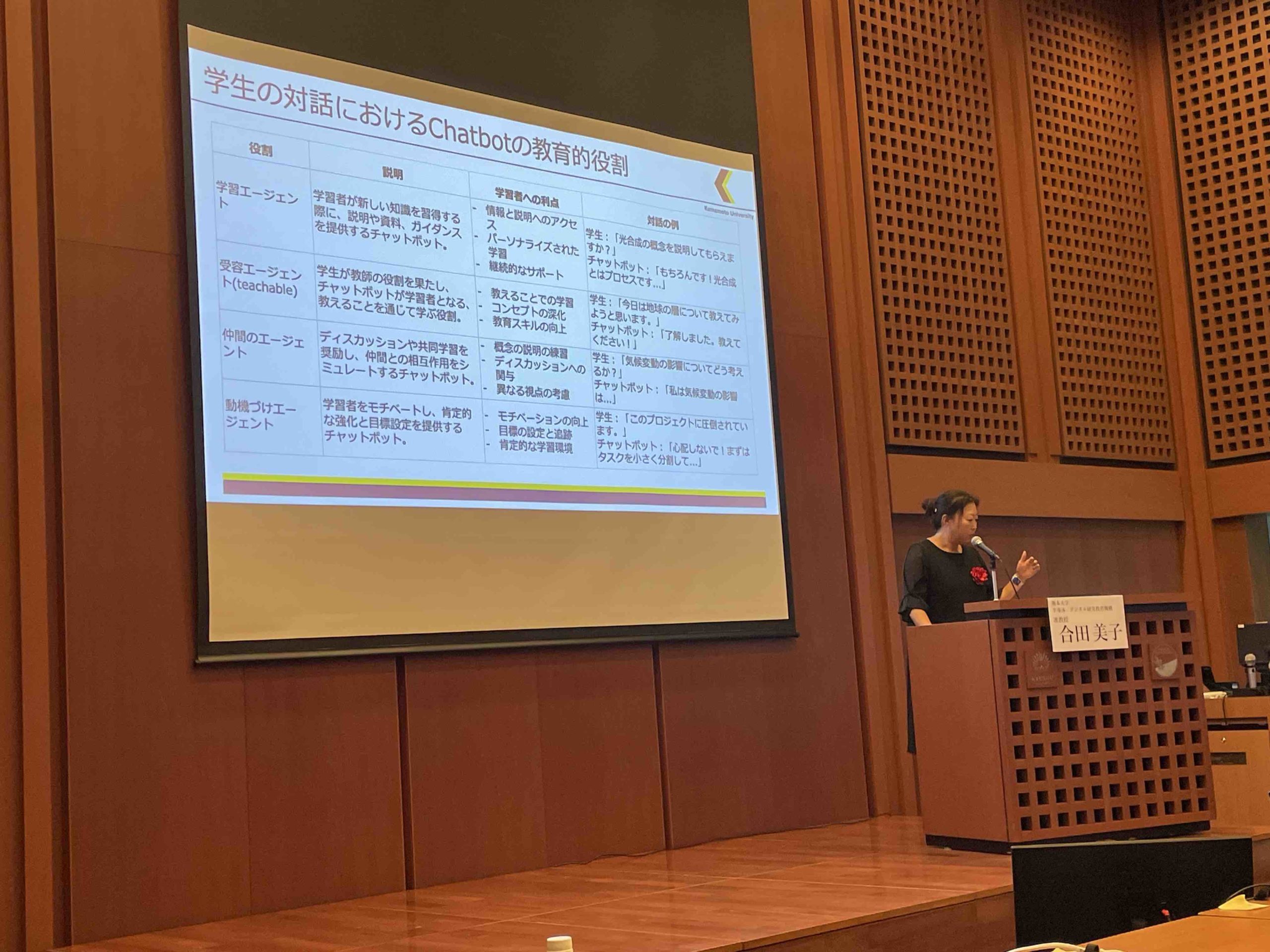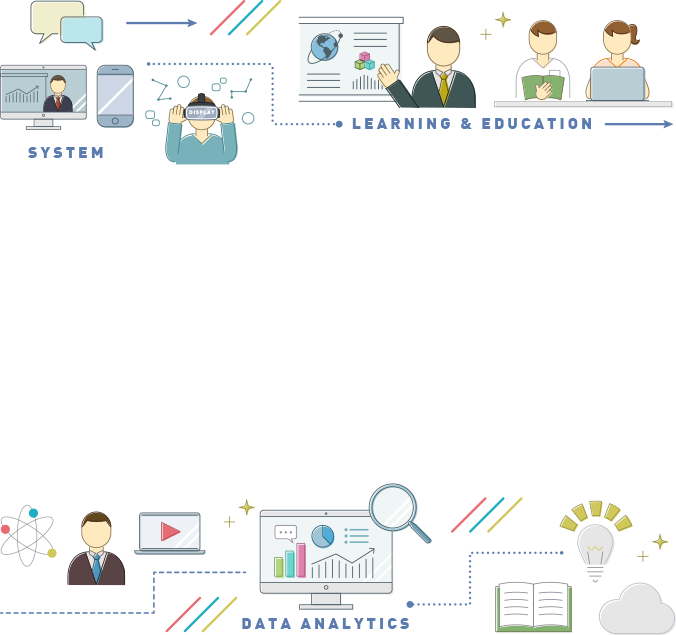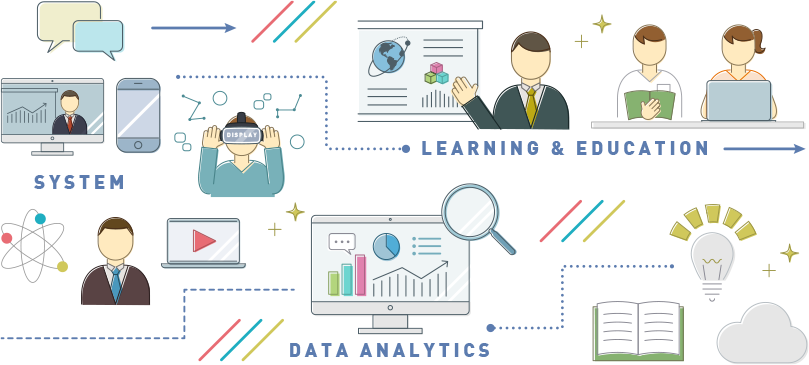The first symposium was held in January 2023, and the second symposium, titled “Possibilities for New Educational Learning Support with Generative AI and Learning Analytics,” took place on September 5. We were honored to have keynote speakers, Dr. Rui Yoshida from the University of Tokyo and Dr. Yoshiko Goda from Kumamoto University. This symposium provided a platform for discussing specific educational applications of generative AI. We express our gratitude to the 320 participants, including those who joined online. Thank you for your valuable participation.
It is evident that Japanese educational institutions are strongly considering the impact of generative AI. Universities have established and are disseminating various rules for its use, and the Ministry of Education, Culture, Sports, Science, and Technology is also involved in spreading awareness. However, it is time to move beyond mere rules and explore various aspects that may become visible and regularly updated in future situations. Therefore, we need a dedicated space for discussing specific use cases to pave the way for the next steps, which is the essence of this symposium.
Dr. Yoshida delivered an insightful presentation on AI in general, illustrating how responses vary based on prompts and emphasizing the importance of assigning roles to AI. He also provided cautionary insights by highlighting real-world issues in the U.S., making the content easily understandable and practical.

Dr. Goda, representing Kumamoto University, shared perspectives on generative AI’s characteristics and emphasized using AI within instructional design to achieve learning objectives, rather than assuming it as the sole method.

Dr. Yin, the head of the System Operation Division at the LA Center, presented a DX case study at Kobe University. Additionally, Dr. Shimada introduced a research case study using generative AI at the Shimada Lab, which proved to be quite interesting. A student from IQLab presented the use of generative AI from a student’s viewpoint, incorporating possible applications based on actual survey results.
While listening to the symposium, four key points emerged:
1. Generative AI needs adaptation for effective use in education and learning.
2. Consideration of the balance between expertise and versatility is crucial.
3. Developing prompts or middleware with AI in education requires understanding intuition, which can be gleaned from everyday human behavior, communication, and group dynamics.
4. The awe-inspiring capabilities of human heuristic judgment and situational awareness.
The third point is particularly significant, emphasizing the importance of understanding various fields of communication-related studies. There are numerous prior studies in this regard, proving to be very helpful.
Although I initially intended to be a passive audience member, I found myself unexpectedly delivering the opening speech due to the unavailability of other division heads. Despite the nervousness and a mere 5 minutes to speak, it was a valuable experience. Dr. Nose’s encouraging words were appreciated, acknowledging the progress made while recognizing there is still much to learn.
Dr. Okubo deserves special thanks for planning and managing the event. The panel discussion was well-organized, showcasing the hard work put into orchestrating a successful symposium. The LA Center remains committed to planning future symposiums focused on Learning Analytics, anticipating continued collaboration for the benefit of all involved.







